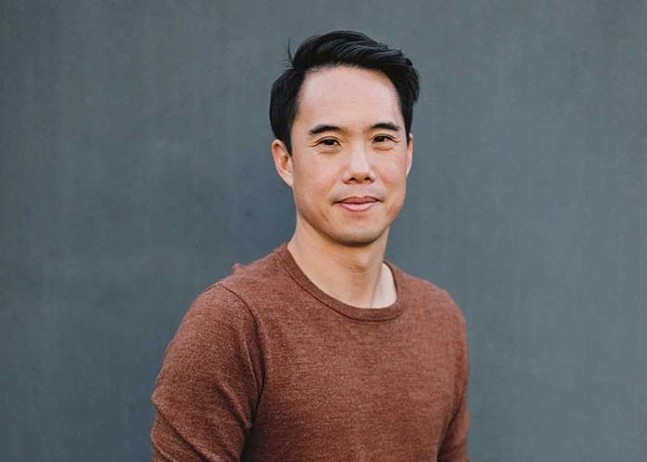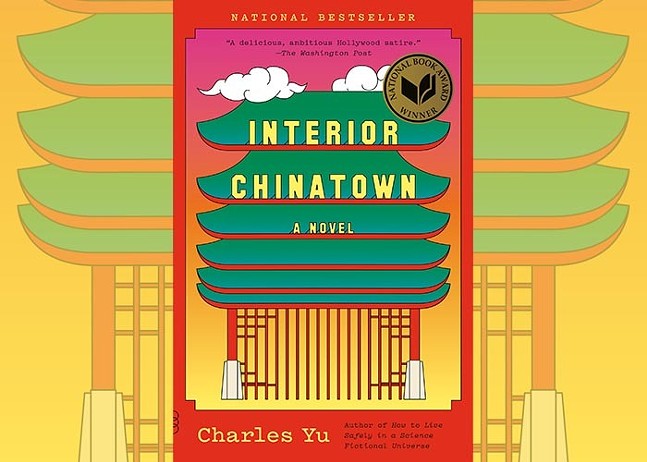Growing up in California, Charles Yu immediately noticed a difference while attending summer camps in Michigan. As soon as he got off the plane from Los Angeles, Yu realized he’d been living in a bubble where people who looked like him were commonplace.
But in Michigan, he stood out merely because he was Asian.
“Even just driving two hours from L.A. to Bakersfield, it’s a very different feel than in a metro area,” he says. “I had cousins who grew up in a small town, a suburb of Boston, who told me they were the only Asian kids in their school. I couldn’t imagine that.”
Yu, who appears Mon., Oct. 18, as a guest of Pittsburgh Arts & Lectures Ten Evenings series, explores what it means to be Asian in the U.S. in Interior Chinatown, winner of the 2020 National Book Award for fiction.
There are so many remarkable things Yu achieves in the novel. The story of a young Asian actor, Willis Wu, forever relegated to playing secondary roles, is told with a rare combination of humor and pathos. The characters are vividly drawn and memorable.
And the book’s formatting, which uses Courier font to mimic the pages of a screenplay, is brilliantly rendered. But Yu refuses to take credit for that.
“I felt bad for the layout designers trying to deal with my wacky formatting,” he says. “It's probably not easy to make the margins actually read right and to make it look like screenplay.”
What Interior Chinatown does best is illuminate how Asians are viewed in the U.S., especially how Hollywood casts Asians. Willis is forever relegated to roles specific and limiting.
Yu admits that growing up in Southern California and writing for television — he has writing credits for series including Westworld and Sorry for Your Loss — influenced the tone of Interior Chinatown.
“I watched a lot of television growing up, and for better or worse, that’s a lot of my vocabulary,” he says. “A lot of the frameworks through which I look at things is, here's a story, here's the star, and here are the people in the background that we don't notice.”
Those background characters in the novel include Dead Asian Man or Generic Asian Man Number Three/Delivery Guy or Generic Asian Man Number Two/Waiter. At the top of the pyramid is Bruce Lee, or Kung Fu Guy, the best an Asian actor could hope to be. But Yu thinks there are more opportunities now, noting the emergence of actors such as Awkwafina (also known as Nora Lum) and Bowen Yang.
“It took a long time to get where we are,” Yu says. “And I grew up in L.A., where there are a lot more Asians that I imagine are in the Midwest or Pittsburgh. Still, especially in terms of media exposure, it felt like you just never saw Asians except in these very confined, constrained roles. That had, I think, a very deep and lasting effect on the perception of Asians living here who were really trying to be part of this country.
“Now we’re getting to see — I think it’s more than a trickle — a somewhat steady flow of projects that seem like they’re trying to tell stories about Asian characters, which is really encouraging.”
Ten Evenings with Charles Yu. 7:30 p.m. Mon., Oct. 18. Lecture will be available to screen virtually online for one week. $10-15. pittsburghlectures.org



